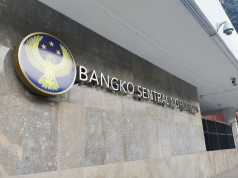MANILA – Bangko Sentral ng Pilipinas (BSP) expects to complete by next month its investigation on the technical glitch that hounded the internal system of the Ayala-led Bank of the Philippine Islands (BPI).
The technical glitch in BPI’s system resulted in chaos among account holders last June 7.
BSP Assistant Governor Chuchi G. Fonacier, of the Supervision and Examination Sub-Sector III, stressed that any penalty against BPI “would really depend on the nature of the situation.”
She said an ongoing BSP investigation on the issue may end “maybe around July.”
“It is too early to tell (if there would be penalties to be imposed against BPI) because the investigation is still ongoing,” she said, adding that “we can’t tell whether there will be sanctions.”
Asked what factors could result in sanctions on BPI, Fonacier said any penalty would be decided “if there were really violations of regulations on the banking laws.”
“But as I said, it would also depend on how the banks took action on the problem. So those things need a really holistic assessment of the situation,” she explained.
Fonacier said the monetary penalty for banking regulations amounts to a maximum of P30,000 per day.
Earlier, BSP Deputy Governor Nestor Espenilla Jr. said BPI had reported the incident to BSP and traced it to technical issues with its internal system.
He added that BPI officials had assured monetary officials that the issue was not due to hacking and that the universal bank’s account holders would not lose any money from the system glitch.
BPI temporarily halted operations of its electronic channels on June 7 following reports about the glitch and as the bank addresses the issue.
BPI Senior Vice President Catherine P. Santamaria said the problem was caused by internal error and not due to hacking.
She said the error covered transactions between April 27 and May 2. “There was an internal data processing issue. There was an internal system issue that we had and as a glitch we are now addressing it. We have put down all our electronic channels so that we can immediately address the situation that we are facing,” she said.
Santamaria said the problem affected “only some” of their eight million clients, and mostly in Metro Manila.










